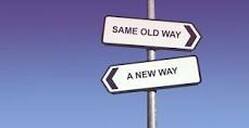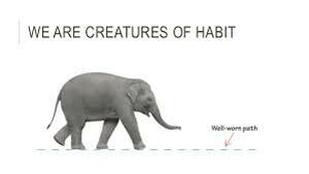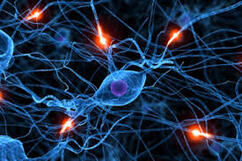Hypnosis has been shown to be as effective or more effective than other methods in stopping or eliminating bad habits. How and why does it work? It is not magic and still requires that the client be both willing to work and committed to making the change. However, a good hypnotist who also understands how the brain and our emotions work can help clients make quicker and more permanent change in stopping those undesirable habits. In a state of hypnosis, the client is relaxed into a trance or state where the subconscious is more accessible and open to suggestion. The subconscious is a taskmaster and takes on what we ask or program it to do. This is where the hypnotherapists understanding of the brain is important to the client’s success in eliminating bad habits. The language and focus of the suggestions or directions to the subconscious are important, as well as, tapping into and neutralizing the client’s emotions around the change process. Hypnosis can give these efforts a boost by tapping into to the subconscious mind and putting it to work for us. Neuroscience tells us that we change by forming new neural pathways and respond in new ways on a continued or repeated basis. The best way then to end or eliminate a habit is to replace it with a new more desirable habit or pattern of response forming a new neural pathway. If we do this the chances are very high that we will be successful.
While self-discipline is a needed and important aspect of creating the behaviors we desire, pure willpower is not a very effective way of stopping or ending undesirable behavior. The reason is simple – it is simply not the way our brain works. We do not form new neural pathways by saying stop to ourselves and our brain does not stop responding to stimuli and following those well-worn pathways we are trying to change. Despite our will to do otherwise, our brain does what it has been doing in a very automatic way. Repeated diligently enough we will form a habit of saying “no” to a particular set of stimuli, but this is not as strong as forming a new rewarding behavior. In order to change those patterns, we must do something to change them and form new neural pathways.
“The secret to change is to focus all of your energy, not on fighting the old, but on building the new.” — Socrates character, “Way of the Peaceful Warrior” – Dan Millman
While self-discipline is a needed and important aspect of creating the behaviors we desire, pure willpower is not a very effective way of stopping or ending undesirable behavior. The reason is simple – it is simply not the way our brain works. We do not form new neural pathways by saying stop to ourselves and our brain does not stop responding to stimuli and following those well-worn pathways we are trying to change. Despite our will to do otherwise, our brain does what it has been doing in a very automatic way. Repeated diligently enough we will form a habit of saying “no” to a particular set of stimuli, but this is not as strong as forming a new rewarding behavior. In order to change those patterns, we must do something to change them and form new neural pathways.
“The secret to change is to focus all of your energy, not on fighting the old, but on building the new.” — Socrates character, “Way of the Peaceful Warrior” – Dan Millman
A mountain of research has shown that habits are stronger than willpower in most cases. However, eliminating bad habits is still very possible and hypnosis used correctly can be very effective. It is both the ability to access our subconscious mind and put it to work on our side and the ability to visualize and experience a successful outcome effectively that leads to success. Hypnosis can also help in reducing the emotional stress and anxiety that is sometimes a part of that process. It is also true that if you do manage to use willpower to push yourself into eliminating a habit, the change is less likely to last. You get tired and slip back. However, if you can build a new habit, forming those new patterns and neural pathways, you can maintain that change long term and are less likely to fall back into the old behavior. For instances, when I decided to stop drinking diet soda, I substituted Chia Lattes and it was fairly easy and painless to make the change. My substitution decision was, however, a little flawed as I soon had a new bad habit of “chai lattes”, which are both sugar laden and expensive. I kicked chai lattes by forming a new habit of herbal teas and coffee. It was fairly easy and painless and I chose herbal teas that are actually good for me and an occasional cup of a great organic coffee that has an amazing mellow taste.
With the help of hypnosis, committed intent and an understanding of how the brain and emotions work, eliminating bad habits and replacing them with new and more desirable behaviors can be easy! Next time you want to stop doing something remember these simple fundamentals of neuroscience and find a good hypnotherapist to help you make the change easier!
With the help of hypnosis, committed intent and an understanding of how the brain and emotions work, eliminating bad habits and replacing them with new and more desirable behaviors can be easy! Next time you want to stop doing something remember these simple fundamentals of neuroscience and find a good hypnotherapist to help you make the change easier!











